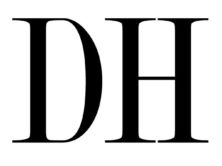
In typical media ethics guidelines, journalists are trained to quote accurately--defined as "word-for-word" with only minor grammar changes allowed. (Credit: "Cub Reporter" video)
Brad A. Greenberg wrote for Get Religion criticizing Fortune magazine’s article on the recent feature film The Social Network. (Get Religion is a blog offering “commentary on religious issues in the news.”)
The article, written by NYU media law professor and Newsweek contributing editor David A. Kaplan, explored reasons why the film, based on the life of Facebook founder Mark Zuckerberg, can get away with telling a not completely true account of Zuckerberg’s life.
Greenberg wrote that “Playing with quotes is not — as in NEVER — an acceptable practice. Legally, it might be permissible, but practically and professionally it is not. Not if you want to have a future as a journalist. Call the subject back or settle for a softer quote or just paraphrase. But don’t ever play with their quote.” Beyond removing pausing words, like “um” and “you know,” changing quotes is unacceptable, Greenberg wrote.
Greenberg highlighted a few sentences from Kaplan’s article and questioned how Kaplan’s words match with journalism ethics. From Kaplan’s article:
“An obvious part of the answer lies in the creative license that American law gives to writers. A novelist can pen a roman a clef, journalists can play with quotes, Oliver Stone can do a wicked screed like W. — all are protected under the First Amendment as long as the material isn’t outright libelous. The fact the works play with the truth is legally beside the point unless the fiction is so over the line that it harms somebody and does so recklessly.”
In response, Kaplan told iMediaEthics that changing quotes for an article isn’t journalistically ethical, and that the “playing with quotes” comment in his Fortune article referred to the 1991 Supreme Court case of Masson v. New Yorker. We asked Kaplan what difference exists between “what is legally and ethically expected of journalists” when it comes to quotes.
Kaplan explained that most journalists find quote changing “grossly unethical” even if the law doesn’t necessarily condemn it.
“The Supreme Court in Masson v. New Yorker (1991) ruled that substantially accurate quotes — even if altered — do not constitute ‘actual malice’ for the purposes of libel law. But I think most of us in journalism would agree that, notwithstanding constitutional protection, the alteration of quotes is grossly unethical. That’s why, for example, the New York Times Magazine came under such heavy criticism a few years ago when it was revealed the weekly Q-and-A, without disclosure, was condensing and rearranging quotes — not even altering them as such.”
We also asked Kaplan if he had any comment about the Get Religion article. He wrote,
“About the best I can do is note the irony of the writer pontificating about quotes when he gets the gist of mine incorrect.
“He writes, ‘I would imagine Kaplan knows his media law. But he might want to bone up on basic journalism ethics.’ The supposition of such a remark is that I don’t understand that conventions and traditions of journalism — ethics by any other name — and didn’t sufficiently criticize playing with quotes.
“But that’s obviously not what my piece in Fortune is about. The piece concerns what’s legal and what isn’t, and why it is that neither Mark Zuckerberg nor Facebook seems likely to take legal action against the movie; the piece doesn’t take on the question of ethical propriety. So the Get Religion poster criticizes a straw man; either the poster is disingenuous or doesn’t know how to read.”
Read Kaplan’s article on Fortune’s website here.
Case Law
In 1993, New Yorker writer Janet Malcolm was found guilty of libel for publishing “two fabricated quotations” in an 1983 article. The New Yorker said in a statement at the time that it stood by her, The New York Times reported.
Her articles were on “[Jeffrey] Masson’s controversial views on Sigmund Freud,” The Washington Post explained. “Masson, a flamboyant Sanskrit scholar turned Freud expert, claims that Malcolm defamed him by inventing arrogant and boastful statements that she attributed to him in her New Yorker series and later her book about his involvement with the Freud Archives.
“Malcolm denies making up the quotations, which did not appear on the transcripts of her extensive tape-recorded interviews with Masson.”
In June 2009, iMediaEthics published a report by Douglas Biber, “Did Daniel Wemp really say that? Using corpus linguistics to evaluate the likelihood that Jared Diamond’s reported quotes in The New Yorker were ever spoken.” The Regents’ Professor, Applied Linguistics, at Northern Arizona University, used his “computational and statistical tools for linguistics,” called corpus linguistics, and determined that UCLA professor, best-selling author and scientist, Jared Diamond’s quotes in a disputed New Yorker magazine article were in all likelihood academic writing and not speech. Like quotations in the Malcolm case, Diamond’s New Yorker “quotations” have led to yet another high profile defamation lawsuit.
For advice on handling quotes, see this 1995 American Journalism Review tipsheet.
iMediaEthics has written to Greenberg of Get Religion asking for comment and will update with any response.







Comments Terms and Conditions